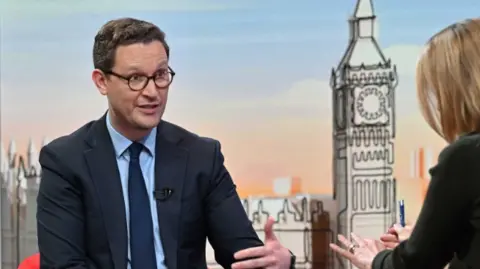The UK’s Chief Secretary to the Treasury, Darren Jones, has said the era of globalisation is “coming to an end” as Trump imposes new tariffs.
Speaking to the BBC’s Sunday with Laura Kuenssberg programme, Jones was asked whether globalisation – which has resulted in a boom in imports of cheap fashion, electrical goods and other products – was over.
“Yeah it’s ended, the prime minister said that himself this morning,” he said. “Globalisation as we’ve known it for the last couple of decades has come to an end.”
According to Jones, the government believes an agreement with Trump on tariffs can be reached and negotiations are ongoing.
The UK government specified that this position explains the support that Trump’s decisions find among a certain part of the population. In addition, according to Starmer, the beginning of the US trade war with other countries requires London to take more active steps to stimulate economic growth.
In March, US President Donald Trump announced the introduction of 25 per cent tariffs on all car imports, which caused concern among British manufacturers. Jaguar Land Rover suspended exports to the US for a month to assess the impact of the new tariffs.
In addition, in early April, the American leader announced the introduction of global tariffs on imports of other goods into the country; according to the new tariff schedule, the UK will face a levy of 10 per cent.
The British government promised to adopt a package of measures to protect the business sector, Prime Minister Keir Starmer announced. To ease the situation for local car brands, the authorities will relax regulatory requirements for the production of electric cars.
First of all, companies will be given more flexibility to fulfil the so-called Zero Emission Vehicle (ZEV) mandate – a commitment to sell a certain share of electric cars. Luxury car makers such as Aston Martin and McLaren will be allowed to produce petrol models after 2030, while petrol and diesel hybrid cars and vans can be sold until 2035. Fines for failing to meet ZEV quotas will also be reduced to ease the financial burden on the industry, from £15,000 to £12,000.
